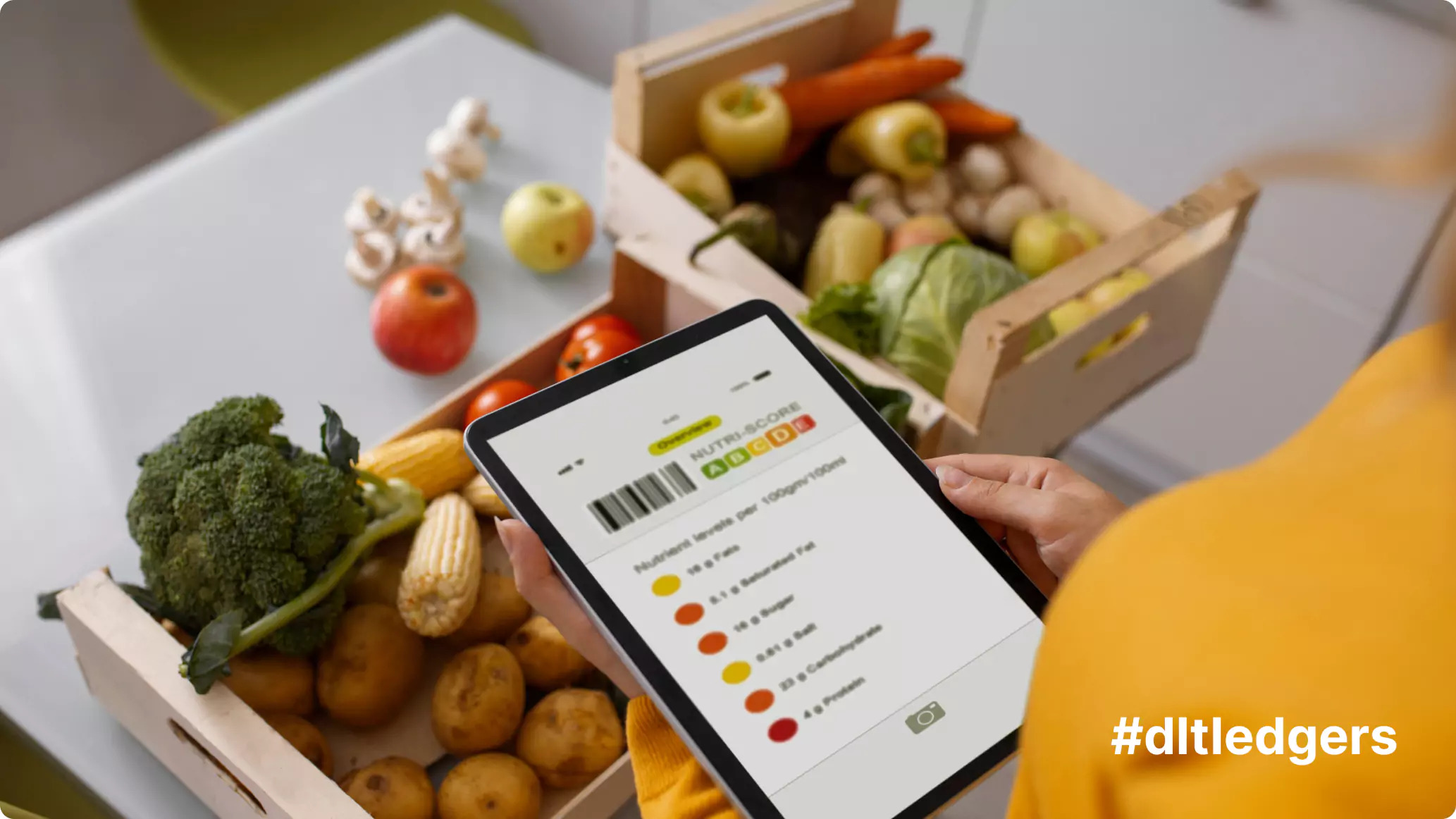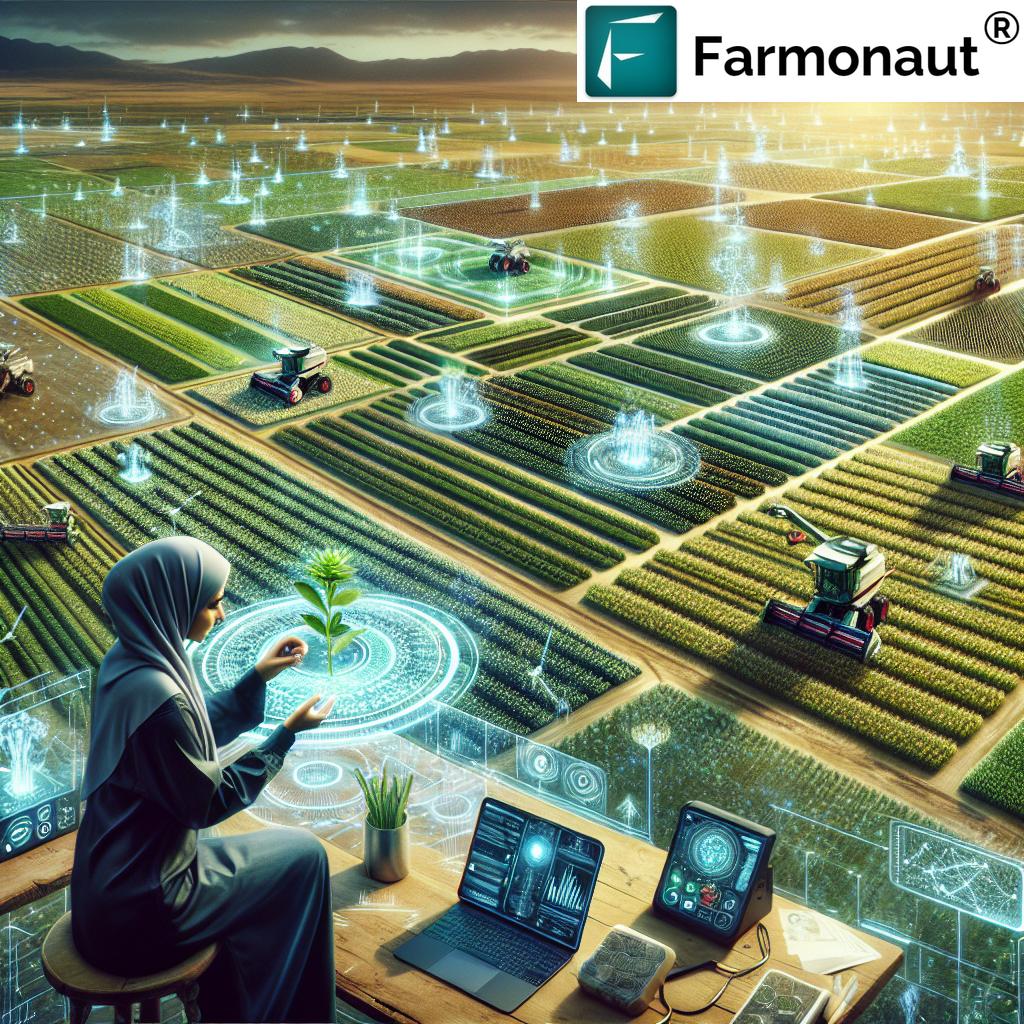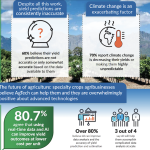Imagine standing in the grocery store aisle, picking up a package of chicken, and instantly knowing everything about its journey from farm to shelf. Sounds futuristic, right?
Yet, with blockchain-based apps, this level of transparency is becoming a reality. These apps are transforming food traceability, offering you peace of mind about the origins of your food. Ever wonder if you could trust the labels claiming “organic” or “locally sourced”?
Blockchain technology is here to provide you with the answers. Dive into this article to discover how this digital revolution is changing the way you see and understand your food, ensuring safety, authenticity, and sustainability every step of the way. Get ready to unlock the secrets behind what you eat, with the power of blockchain at your fingertips.

Blockchain In Food Supply Chains
Blockchain technology is reshaping the way food supply chains operate. Imagine knowing the journey of your favorite chocolate bar from farm to shelf, ensuring transparency and quality. Blockchain makes this possible by recording every step of the supply chain on a decentralized, tamper-proof ledger. This technology is not just a buzzword; it’s a practical solution to real-world problems in food traceability.
Trust is the cornerstone of any food supply chain. Blockchain helps build that trust by providing verifiable data about the origin and journey of food products. When you buy groceries, you want to be sure of their quality and safety. Blockchain ensures that all information, from farming practices to processing methods, is accurate and accessible.
Consider how this impacts you as a consumer. Knowing the history of the food you consume empowers you to make informed choices. Would you choose a product that tells you its whole story over one that remains a mystery? Blockchain offers this transparency, allowing you to pick products that align with your values.
Real-world Examples
Big names in the food industry are already using blockchain. Walmart, for example, tracks its leafy greens using this technology to quickly identify the source of contamination, if any. This means faster response times in case of recalls, reducing health risks. Imagine having the power to avoid contaminated products before they reach your plate.
Another example is Nestlé, which uses blockchain to trace its milk products. This traceability helps ensure quality and sustainability, offering you a better and safer product. Knowing where your food comes from is no longer a luxury; it’s becoming a standard expectation.
Benefits For Producers And Retailers
Producers can showcase their commitment to quality and sustainability by participating in blockchain-based supply chains. This transparency can be a unique selling point, helping them stand out in a competitive market. Don’t you feel more inclined to support businesses that are open about their practices?
Retailers benefit from improved inventory management and reduced waste. With blockchain, they can track product movement in real-time, leading to more efficient stock replenishment. This means less waste and fresher products on your store shelves.
Challenges And Considerations
Implementing blockchain in food supply chains is not without challenges. It requires significant investment and a willingness to change established processes. Are companies ready to embrace this change for the greater good?
There’s also the need for collaboration across the supply chain. Success depends on all parties being committed to transparency. As a consumer, you play a role by choosing products that support this innovative approach.
As blockchain technology continues to evolve, its impact on food traceability will likely grow. Will you be a part of this transformation by demanding more transparency in the food you buy?

Enhancing Transparency And Trust
Imagine knowing the exact journey of the food you eat. From farm to table, blockchain-based apps are making this possible by enhancing transparency and trust in the food industry. As a consumer, you deserve to know where your food comes from. Blockchain technology is stepping in to ensure you have that information at your fingertips.
Making Information Accessible
Blockchain apps provide detailed information about your food’s history. With a simple scan, you can access data about the farm it was grown on, the methods used, and even the transportation journey. This accessible information empowers you to make informed choices and assures you of the food’s authenticity.
Building Consumer Trust
Trust in food sources is crucial. Blockchain technology ensures that each step in the supply chain is recorded and verified. This transparency builds trust, as you can verify the authenticity of claims made by producers. Knowing that the information is secure and tamper-proof gives you peace of mind when choosing your meals.
Strengthening Accountability
Producers are held accountable through blockchain systems. Each entry in the blockchain is permanent and traceable. This accountability encourages ethical practices and ensures that producers adhere to standards. As a result, you benefit from higher quality and safer food options.
Empowering Sustainable Choices
Blockchain apps enable you to support sustainable practices. By accessing information about the environmental impact of food production, you can make choices that align with your values. This empowerment drives demand for eco-friendly products, encouraging producers to adopt sustainable methods.
A Personal Insight
I’ve experienced firsthand the power of blockchain in food traceability. A visit to a local farmer’s market introduced me to blockchain-traced produce. The ability to scan a code and learn about the farm’s organic practices changed how I shop. It was reassuring to know exactly what I was putting on my plate.
Would you feel more confident knowing the complete journey of your food? Blockchain technology offers that assurance, making food traceability not just a possibility, but a reality. As more apps adopt this technology, transparency and trust in the food industry will continue to grow.
Challenges And Future Prospects
Blockchain-based apps are reshaping food traceability, bringing transparency and trust. Yet, challenges persist. As technology evolves, new opportunities arise. Understanding the hurdles and future possibilities is key. With this knowledge, both the food industry and consumers can benefit from enhanced safety and accountability.
Challenges In Implementing Blockchain For Food Traceability
Implementing blockchain in food traceability faces significant hurdles. One major issue is integration. Many companies use traditional systems that don’t easily sync with blockchain. This can slow down adoption.
Cost is another concern. Small businesses may struggle with high initial expenses. They need affordable solutions to compete effectively. Furthermore, understanding blockchain technology can be complex. Staff training is often required to ensure proper use.
Data privacy is also a major challenge. Blockchain is transparent, but it must protect sensitive information. Companies need secure protocols to safeguard data.
Future Prospects Of Blockchain In Food Traceability
The future of blockchain in food traceability looks promising. New technologies can make integration easier. As costs decline, more businesses can adopt these systems. This will enhance food safety and quality.
Blockchain can also improve supply chain efficiency. Faster traceability can reduce waste and ensure timely delivery. With ongoing research, blockchain may soon offer even better security measures. This can protect both company and consumer data.
As awareness grows, more consumers will demand transparency. Companies that adopt blockchain can build trust and loyalty. They will have a competitive edge in the market.
The technology continues to evolve. This offers exciting opportunities for innovation and growth in food traceability.

Conclusion
Blockchain-based apps are changing food traceability for the better. They offer transparency and reliability. Consumers can track their food’s journey easily. Farmers and producers benefit too. They gain trust and improve safety. Businesses see reduced fraud and waste. This technology leads to more informed choices.
Shoppers know what they’re buying. The future of food traceability looks bright with blockchain. It’s a step towards safer and more transparent food systems. Implementing these apps can benefit everyone. From farm to table, trust grows. The result? Healthier and safer food for all.


